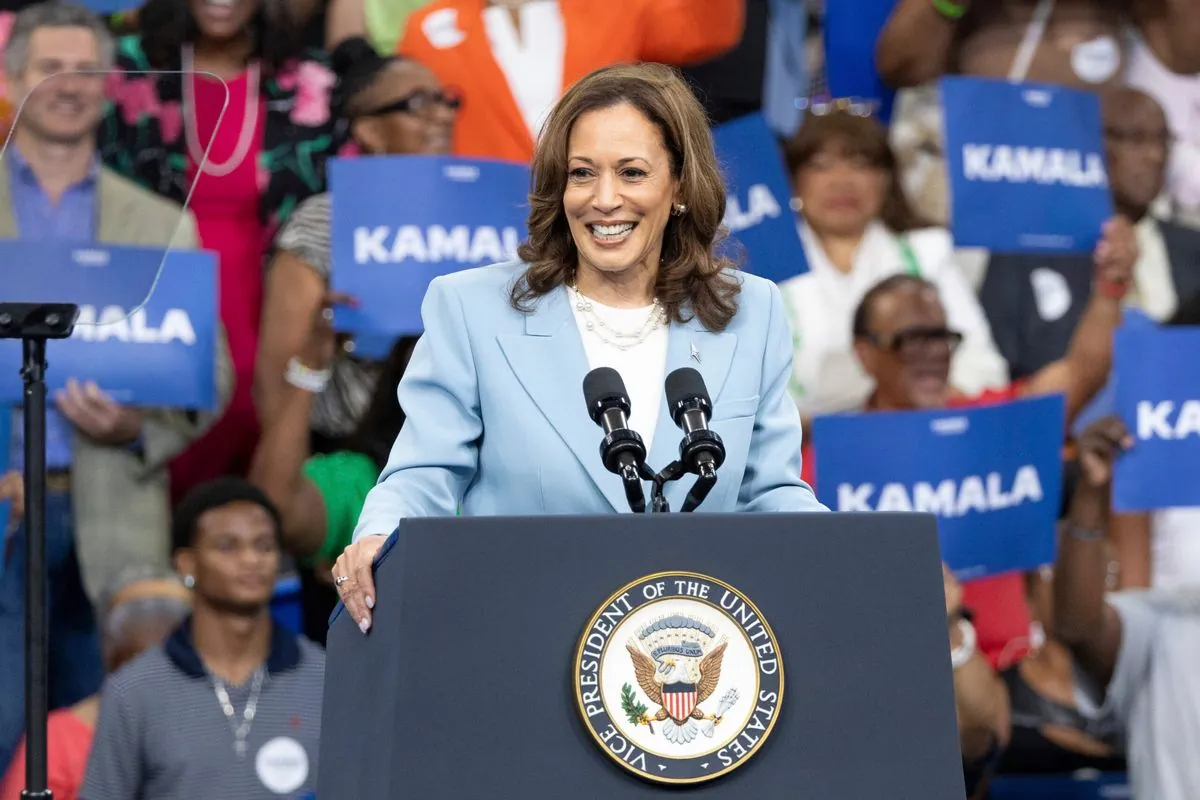Harris Victory: A Turning Point for US Politics and Republican Renewal
Kamala Harris's potential win in the upcoming US presidential election could reshape American politics, forcing Republican Party reconstruction and reaffirming democratic principles. Her victory may be crucial for America's global role.

The upcoming US presidential election, set to take place in November 2024, could mark a significant turning point in American politics. The potential victory of Kamala Harris is being viewed as crucial for the nation's future and its role on the global stage.
Harris, who made history as the first woman, African American, and Asian American to become vice president, now stands at the threshold of potentially becoming the next US president. Her ascent to the presidency could have far-reaching implications, not only for the Democratic Party but also for their political rivals.
One of the most significant outcomes of a Harris victory could be the transformation of the Republican Party. The defeat of the current Republican leadership might catalyze a much-needed reconstruction within the party, potentially leading to its return as a responsible opposition force in American politics.

The Republican Party, founded in 1854 primarily to oppose the expansion of slavery, has a long history of evolution and adaptation. A Harris administration could prompt the party to reassess its positions and engage in more substantive political discourse, moving away from divisive rhetoric and towards constructive debate on policy issues.
"The implementation of what the American Right sees as alarmingly 'progressive' measures will bring about a resurgence of tough-minded, well-argued Republican critique – as opposed to obnoxious bluster – much of it quite possibly from new players on the scene who are as yet unheard of."
Harris's policy proposals have been a subject of intense scrutiny. While some critics argue that her plans lack specificity, others view them as potentially transformative. Her suggestions include improving Medicare negotiations for prescription drug prices and enhancing employee rights for medical and maternity leave.
It's worth noting that many of Harris's proposed policies are commonplace in other developed nations. For instance, the right to medical and maternity leave for employees is standard in most modern democracies. Similarly, negotiating better prices for prescription medications for seniors is a practice widely accepted outside the United States.
The ongoing debate surrounding Harris's candidacy reflects a broader discussion about American values and the country's political future. The United States, founded on principles outlined in the Constitution written in 1787, has always prided itself on its capacity for reinvention and progress.
Central to the American ethos is the concept of hope and self-determination. This idea, often encapsulated in the term "American Dream" - popularized by James Truslow Adams in 1931 - remains a powerful force in US politics. It represents the belief that everyone has the opportunity to succeed and improve their lives, regardless of their background.
As the nation approaches this pivotal election, the outcome will undoubtedly shape the trajectory of American politics for years to come. Whether it results in a Harris presidency or not, the election's impact on the two-party system, dominated by Democrats and Republicans since the mid-19th century, will be significant.
In conclusion, the potential Harris victory represents more than just a change in leadership. It symbolizes a possible shift in the American political landscape, a test of the nation's founding principles, and an opportunity for renewal across the political spectrum.


































